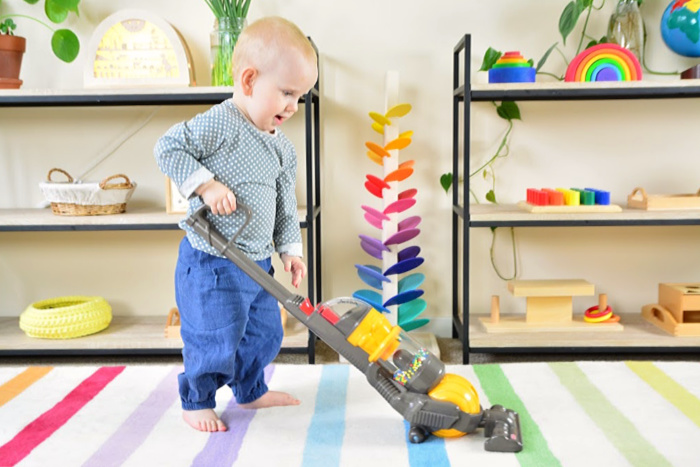There’s a division of labor problem in this country, and it’s been going on for a long time.
Gallup recently released their latest report on the division of labor in heterosexual marriages. Shocking absolutely no one, the report found that women remain largely responsible for domestic tasks, and the balance hasn’t shifted much in the two decades they’ve been tracking it.
Well not surprising, it is impacting many of our lives – as demonstrated by the many articles and discussions about how to fix it. I particularly enjoyed this: do you have a rage friend? If not, get one. Clearly, this is something we need to be talking about.
In related news, Vanessa Fuhrman also took a deep dive on why there are so few female CEOs last week. Most of us can’t even think of who these CEOs are. Try and name 3 (nope, she’s stepping down, try again). Her research shows that we’re not making it to the top because we’re getting sidelined too early to even be in the running.
Reading both of these articles it hit me: Ladies, we’ve got a pipeline problem.
Impressively, a variety of senior women openly shared their experience with Furhman. All of their observations were compelling, but one quote stuck with me: “When you’ve been doing something so long, people say, ‘But you’re so good at this.’” Sound familiar?
The risk of being pigeonholed is just as real at work as it is at home. It’s also just as much of an excuse from others in both cases. When women are out performing at work, rather than give them new challenges, bosses tend to leave them to continue to excel. Often this is tied to long-standing assumptions about female ambition.
When corporations haphazardly move women into senior positions for the sake of gender diversity, rather than intentionally training someone for those roles, it doesn’t go well. Instead, the companies that have successfully moved toward gender equilibrium have deliberately put in place strategic action plans to cultivate promising talent early on.
Maybe we need to do the same at home.
We cannot haphazardly toss people into roles at home and expect better outcomes than we see at work. In the office, men report having strategic support networks, sponsors, training, career mapping, detailed career advice, and consistent encouragement. They are set-up for success. Could we be more methodical in setting up success structures at home as well?
These labor imbalances – at home and at work – are clearly not a question of skill or ability. Women are perfectly capable of being CEO and men can do all the domestic work. So if it is talent development, access, and sponsors what can be done differently at your office or your house? How are you developing your pipeline – or putting yourself into that pipeline?
Perhaps we need to take a lesson from corporations. Does your partner fall short of the 50% divide you’d like? Think back, did you do more of the domestic work upfront and expect it to magically change? Have you been doing too good a job – making you loathe to mix up the status quo? What about past management, did your mother-in-law give her son an easy pass? In a world that still talks about engagement chicken, we might need to start looking to junior talent instead. Do you have a son? Get him cooking, cleaning, folding laundry immediately. My son is 7 months old, so I’m aiming to have him vacuuming in another few weeks.
I’m kidding of course. My son will start with dishes, I prefer vacuuming.


